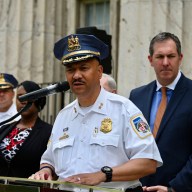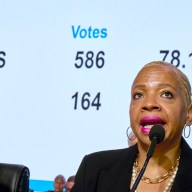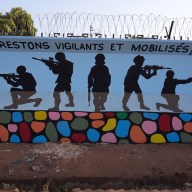By Sarah White and Catherine Bennett
MADRID (Reuters) – A third election in Spain would do nothing to resolve a deadlock that has left the country without a new government for over seven months, an influential survey suggested on Monday, piling pressure on leaders to find another way out of the impasse. Two elections – in December and June – delivered hung parliaments after the rise of newer political forces ended four decades of a stable two-party system.
Now, state pollster Centro de Investigaciones Sociologicas said, the number of people who not even bother to vote is on the rise.
“A third election would be ridiculous, what a waste of money. Politicians’ job is to govern and sort this out, what have they been doing for a year?” said Beatriz Claver, a financial consultant taking a break in a square in central Madrid. Negotiations between Spanish leaders have yet to bear fruit after the latest election, with the conservative People’s Party (PP) of acting Prime Minister Mariano Rajoy, which won the most votes both times, struggling to get backing from rivals to form a government. The PP would maintain its leading position in another election, winning 32.5 percent of the vote, the survey showed.
But that would be a slight drop from the 33 percent it garnered in a June 26 election and would still leave it far from a parliamentary majority.
The political paralysis has yet to derail Spain’s economic recovery, with a booming tourism season encouraging businesses to hire and households to spend.
But without a government, Spain will struggle to deliver its 2017 budget plans to Brussels in time for a mid-October deadline – raising concerns over how long its economy can continue to outperform euro zone peers. And voters are growing increasingly weary. Some 13.4 percent of the 2,500 people surveyed in early July said they would abstain in another election, versus the 11 percent recorded in its last survey of voting intentions in early June. LAUGHING STOCK
The historic rivalry between the PP and the Socialists as well as differences over policy and leadership have hampered the talks.
The liberal Ciudadanos (Citizens) party, a natural ally for the PP on economic matters, has opposed giving its support to Rajoy and called for a new face at the helm of a potential PP-led minority government after the PP was battered by a series of corruption scandals. It has only promised to abstain in a confidence vote to invest a new PP prime minister, while the Socialists have, since December, insisted they would vote against the PP.
Rajoy warned last week a third election might be needed to break the deadlock, though most parties concede it would be damaging.
“Holding a third election would turn us into the laughing stock of Europe,” PP parliamentary spokesman Rafael Hernando told a news conference after Monday’s poll.
The Socialists would come a slightly improved second if another election were held, the poll showed, on 23.1 percent of the vote versus 22.7 percent in June. It did not give an estimate of parliamentary seats. An alliance of far-left parties, Unidos Podemos (“Together We Can”) would come third with 19.6 percent of the vote, down from 21.1 percent in the last ballot, while Ciudadanos would come fourth with 12 percent, down from 13 percent. The PP was the only one of the four main parties to win more seats in parliament in June compared with December, racking up 137, though that was still short of the 176 needed for a majority in the 350-strong lower house. Surveys show a vast majority of Spaniards are still more concerned with underlying economic problems such as Spain’s high unemployment rate than with the political vacuum. But some are alarmed that the talks appear to be going nowhere. “I am worried, I think that we can’t trust in any change happening soon,” said metro worker Ivan del Fresno, 37, adding he no longer cared what form of government emerged from the negotiations. (Additional reporting by Rodrigo de Miguel, Editing by Paul Day)


















